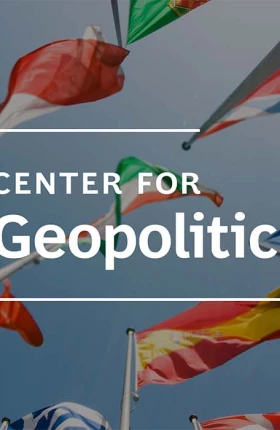Right now, the 50th meeting of the Group of Seven (G7) has taken place against a backdrop of increased geopolitical tensions, protectionist trade policies, and a fraying of the global order shaped by Western-inspired institutions.
The seven member states (Canada, France, Germany, Italy, Japan, the UK, and the US) were joined by the leaders of 10 emerging economies as they tackled issues including international security, the governance of AI, climate change, and food security.
The So What
“The creation of the G20 a quarter-century ago marked a milestone in the postwar world order, building on the momentum of market-led globalization. But the G20 is losing influence now due to geopolitical divisions and a reversion to nationalist policies,” says Iacob Koch-Weser, an associate director at BCG specializing in geopolitics and trade.
“In this difficult moment, the G7 can work to reassert its leadership on global issues, such as AI regulation and international security. Ultimately, in a more interconnected, multipolar world, it can’t work in isolation.”
“The looming question is whether multilateralism can enter a new phase of stable alignment between the traditional industrial economies and emerging players like India and China.”
These are some of the key challenges facing the G7:
- Since the G7 was first established in 1975, the economic weight of many emerging markets has substantially increased relative to the industrialized economies that were the basis of post-war institutions for multilateralism. Emerging economies such as India and China are not only wealthier and more populous, they also want to exert independent influence on the global stage, while countries in the Global South want to ensure their interests are better represented.
- The BRICS group of emerging nations is growing both in the number and strength of member countries, and in ambition. The ten nations that are, or will be, part of the group account for 40% of crude oil production and exports, one quarter of global GDP, and two-fifths of global trade in goods. It also has a New Development Bank and a BRICS payments app that enables transactions in non-dollar currencies.
- Wars in eastern Europe and the Middle East have become protracted and consequential for entire regions. While the war in Ukraine has galvanized the G7 to present a united front, there is a clear difference in approach among world leaders. India, for example, has not imposed financial sanctions on Russia.
- Far-right movements are growing at the expense of the centrist parties in some industrialized nations. This could lead to the erosion of the G7 from within, as politicians favor nationalist policies and put less emphasis on multilateral institutions.
- There has been criticism of the G7 for not adequately addressing the interests of the Global South when faced with crises including climate change and the COVID pandemic. Western debt restructuring and loan mechanisms—which often come with conditions and constraints—have also been less appealing than China’s approach of funding critical infrastructure. That means that China is exerting considerable influence on these nations. And while the G7 has been vocal about the need to promote democracy and free markets, the sentiment has not always been widely echoed by leading emerging economies.
Now What
There are also many opportunities for the G7 to continue shaping world affairs:
- Despite a backlash against globalization in some quarters, there is a clear need for alignment among like-minded leading nations, especially when it comes to international security. Aside from geopolitics, a coordinated global response is needed on climate change, migration, and the regulation of AI.
- The trend away from just-in-time supply chains, as well as increased caution about overreliance on imports from China, means that many trade routes and relations are being reconfigured. This is an opportunity for the G7 nations to establish stronger relations with some of the emerging economies, and cement new relationships.
- Some members of the BRICS group such as Brazil and India have important relationships to foster with the US in particular, and may be able to exert influence from within the alternative grouping. G7 nations could consider how to double down on these relationships, for example through the infrastructure projects for an India-Europe trade corridor as an alternative to China’s Belt and Road initiative.
- The G7 has a first-mover advantage in the timings of its annual meeting. G7 leaders meet in early summer and their statements may then influence the agenda for meetings of the G20 and BRICS in the fall.




